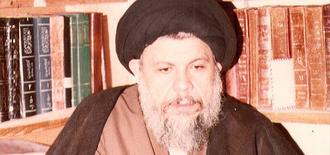Message of ayatollah Seyyed Ali Khamenei, Leader of The Islamic Republic of Iran
In the name of God, the Beneficent the Merciful
To the Youth in Europe and North America,
The recent events in France and similar
ones in some other Western countries have convinced me to directly talk
to you about them. I am addressing you, [the youth], not because I
overlook your parents, rather it is because the future of your nations
and countries will be in your hands; and also I find that the sense of
quest for truth is more vigorous and attentive in your hearts.
I don’t address your politicians and
statesmen either in this writing because I believe that they have
consciously separated the route of politics from the path of
righteousness and truth.
I would like to talk to you about Islam,
particularly the image that is presented to you as Islam. Many attempts
have been made over the past two decades, almost since the
disintegration of the Soviet Union, to place this great religion in the
seat of a horrifying enemy. The provocation of a feeling of horror and
hatred and its utilization has unfortunately a long record in the
political history of the West.
Here, I don’t want to deal with the
different phobias with which the Western nations have thus far been
indoctrinated. A cursory review of recent critical studies of history
would bring home to you the fact that the Western governments’ insincere
and hypocritical treatment of other nations and cultures has been
censured in new historiographies.
The histories of the United States and
Europe are ashamed of slavery, embarrassed by the colonial period and
chagrined at the oppression of people of color and non-Christians. Your
researchers and historians are deeply ashamed of the bloodsheds wrought
in the name of religion between the Catholics and Protestants or in the
name of nationality and ethnicity during the First and Second World
Wars. This approach is admirable.
By mentioning a fraction of this long
list, I don’t want to reproach history; rather I would like you to ask
your intellectuals as to why the public conscience in the West awakens
and comes to its senses after a delay of several decades or centuries.
Why should the revision of collective conscience apply to the distant
past and not to the current problems? Why is it that attempts are made
to prevent public awareness regarding an important issue such as the
treatment of Islamic culture and thought?
You know well that humiliation and
spreading hatred and illusionary fear of the “other” have been the
common base of all those oppressive profiteers. Now, I would like you to
ask yourself why the old policy of spreading “phobia” and hatred has
targeted Islam and Muslims with an unprecedented intensity. Why does the
power structure in the world want Islamic thought to be marginalized
and remain latent? What concepts and values in Islam disturb the
programs of the super powers and what interests are safeguarded in the
shadow of distorting the image of Islam? Hence, my first request is:
Study and research the incentives behind this widespread tarnishing of
the image of Islam.
My second request is that in reaction to
the flood of prejudgments and disinformation campaigns, try to gain a
direct and firsthand knowledge of this religion. The right logic
requires that you understand the nature and essence of what they are
frightening you about and want you to keep away from.
I don’t insist that you accept my reading
or any other reading of Islam. What I want to say is: Don’t allow this
dynamic and effective reality in today’s world to be introduced to you
through resentments and prejudices. Don’t allow them to hypocritically
introduce their own recruited terrorists as
representatives of Islam.
Receive knowledge of Islam from its
primary and original sources. Gain information about Islam through the
Qur’an and the life of its great Prophet. I would like to ask you
whether you have directly read the Qur’an of the Muslims. Have you
studied the teachings of the Prophet of Islam and his humane, ethical
doctrines? Have you ever received the message of Islam from any sources
other than the media?
Have you ever asked yourself how and on
the basis of which values has Islam established the greatest scientific
and intellectual civilization of the world and raised the most
distinguished scientists and intellectuals throughout several centuries?
I would like you not to allow the
derogatory and offensive image-buildings to create an emotional gulf
between you and the reality, taking away the possibility of an impartial
judgment from you. Today, the communication media have removed the
geographical borders. Hence, don’t allow them to besiege you within
fabricated and mental borders.
Although no one can individually fill the
created gaps, each one of you can construct a bridge of thought and
fairness over the gaps to illuminate yourself and your surrounding
environment. While this preplanned challenge between Islam and you, the
youth, is undesirable, it can raise new questions in your curious and
inquiring minds. Attempts to find answers to these questions will
provide you with an appropriate opportunity to discover new truths.
Therefore, don’t miss the opportunity to
gain proper, correct and unbiased understanding of Islam so that
hopefully, due to your sense of responsibility toward the truth, future
generations would write the history of this current interaction between
Islam and the West with a clearer conscience and lesser resentment.
Seyyed Ali Khamenei
21st Jan. 2015


